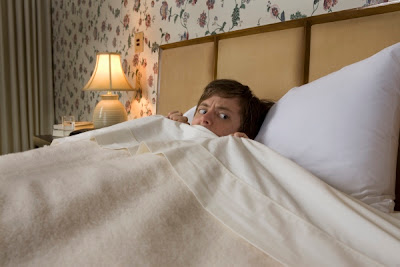Good sleep will save from diabetes

U.S. researchers have found that a 7-hour night's sleep can prevent the development of diabetes in adolescents. What is diabetes Diabetes - a disease in which there is a persistent increase in the level of glucose in the blood. Distinguish type 1 diabetes and type 2 diabetes. With type 1 diabetes is a destruction of the pancreatic cells, which produce insulin . Insulin is needed by the body to lower blood glucose. The remaining cells of the pancreas can not meet the body's need for insulin, so most of the glucose does not enter the cells, and stays in the blood. With type 2 diabetes, pancreatic cells do not suffer, and the body is enough insulin. However, the cells lose their sensitivity to insulin - is developing the so-called insulin resistance . If we imagine that insulin - is a key that opens the cell for glucose, insulin resistance is at a key does not fit the lock and can not open the cage. As a result, glucose does not enter the cells, and stays in the blood. T...

